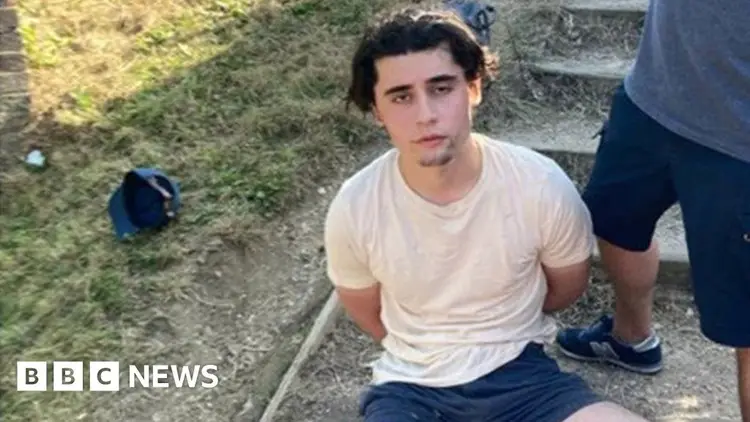Daniel Khalife changes plea to guilty on prison escape charge

Former British Army soldier Daniel Khalife has admitted to breaking out of Wandsworth Prison last September.
He initially entered a plea of not guilty to the accusation and is currently in the process of testifying during his trial.
This morning, he faced the charges once more and admitted his guilt, leading the jury to declare him guilty of escaping from lawful custody.
He is still facing a trial for three additional charges.
This involves gathering and sharing valuable information with an adversary, specifically Iran. This includes obtaining the names of Special Forces personnel that could be exploited for terrorist activities and staging a false bomb threat at their military base.
Daniel Khalife's trial started last month, and he has already testified for three days.
During the testimony, he confessed to evading Wandsworth Prison in London by hiding in a makeshift sling beneath a food delivery truck, covered by the tailgate.
He slipped away from beneath the truck close to Wandsworth roundabout and vanished into the city. Three days later, he was caught again following an extensive search.
He explained to the jury that he fled because he was kept in the vulnerable prisoners unit, which primarily houses sex offenders. He also mentioned that he had been alerted to the possibility of "terrorists" in Wandsworth Prison planning to harm him.
He mentioned that he thought if he managed to get away, he would end up in the high-security section of Belmarsh Prison.
An inspection revealed 81 security issues at Wandsworth Prison following the escape incident.
The prison's Independent Monitoring Board reported that a security review found "81 shortcomings," leading to much-needed improvements in the CCTV system, which had been non-functional for over a year.
The jury learned that Daniel Khalife enlisted in the Army when he was just 16 years old. By the time he was 17, he had made contact with someone associated with Iranian intelligence. He later reached out to MI6, expressing his desire to work as a double agent.
He informed the jury that all the details he provided to the Iranians were either “false” or “nonessential.”
He refutes claims of collecting information beneficial to an adversary, assembling a roster of Special Forces personnel that could aid in terrorist activities, and carrying out a false bomb threat.
The trial is still ongoing, and he is presenting his evidence.























































